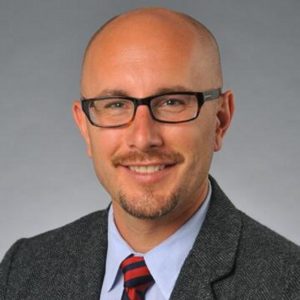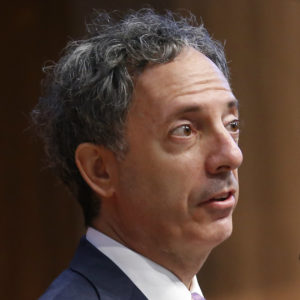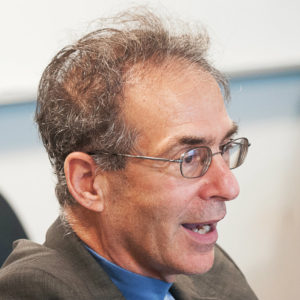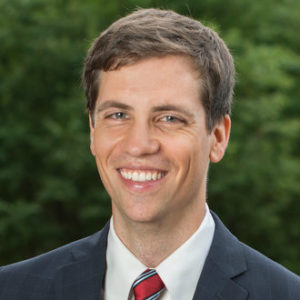Varieties of American Conservatism
Discover the intellectual roots of modern conservatism.
JULY 12 - JULY 25, 2020
Washington, DC
If there is one thing about politics that unites Americans these days, it is their contempt for political parties and partisanship. More Americans today identify as independents than with either of the two major political parties. Party leaders in Congress are held in disrepute, criticized by one side for being too soft and condemned by the other for being too extreme. The partisan coalitions that defined the Democratic and Republican parties for decades seem to be breaking apart, as insurgent, “outsider” politicians — like Donald Trump and Bernie Sanders — continue to rise.
Yet while both major parties are less popular than at any time in recent history, partisan antipathy has only intensified. Party affiliation is now a bigger wedge between Americans than race, gender, religion, or level of education. Rather than being one two-party nation, the polarized U.S. is in danger of becoming “two one-party nations.”
What is the origin of this bitter and seemingly irreconcilable divide? Is there an ideal level of party difference? How much is too much? In this one-week seminar, students will examine the roots of party polarization and its implications for our national politics. The 2016 election and the 2018 midterms will provide the backdrop for our discussion of the significance of parties.
Dan DiSalvo on party reform in America

Daniel DiSalvo is a Senior Fellow at the Manhattan Institute’s Center for State and Local Leadership and an Assistant Professor of Political Science at The City College of New York-CUNY. His scholarship focuses on American political parties, elections, labor unions, state government, and public policy.

Daniel DiSalvo is a Senior Fellow at the Manhattan Institute’s Center for State and Local Leadership and an Assistant Professor of Political Science at The City College of New York-CUNY.
His scholarship focuses on American political parties, elections, labor unions, state government, and public policy. He is the author of Government Against Itself: Public Union Power and Its Consequences (Oxford University Press, 2015) and Engines of Change: Party Factions in American Politics, 1868-2010 (Oxford University Press, 2012).
DiSalvo writes frequently for scholarly and popular publications, including National Affairs, City Journal, American Interest, Commentary, The Weekly Standard, Los Angeles Times, New York Daily News, and New York Post. He is coeditor of The Forum: A Journal of Applied Research in Contemporary Politics.
DiSalvo holds a Ph.D. in politics from the University of Virginia.
Readings:
Discussion Questions:
Readings:
Audio:
Discussion Questions:
Readings:
Discussion Questions:
Readings:
Discussion Questions:
Readings:
Discussion Questions:

Matthew Continetti
Matthew Continetti is the director of domestic policy studies and the inaugural Patrick and Charlene Neal Chair in American Prosperity at the American Enterprise Institute (AEI), where his work is focused on American political thought and history, with a particular focus on the development of the Republican Party and the American conservative movement in the 20th century.

Daniel DiSalvo
Daniel DiSalvo is a Senior Fellow at the Manhattan Institute’s Center for State and Local Leadership and an Assistant Professor of Political Science at The City College of New York-CUNY. His scholarship focuses on American political parties, elections, labor unions, state government, and public policy.

Peter Berkowitz
Peter Berkowitz is the Tad and Dianne Taube Senior Fellow at the Hoover Institution, Stanford University. He studies and writes about, among other things, constitutional government, conservatism and progressivism in America, liberal education, national security and law, and Middle East politics.

James W. Ceaser
James W. Ceaser is Harry F. Byrd Professor of Politics at the University of Virginia, where he has taught since 1976, and a senior fellow at the Hoover Institution. He has written several books on American politics and political thought, including Presidential Selection and Liberal Democracy and Political Science.

Adam J. White
Adam J. White is the Laurence H. Silberman Chair in Constitutional Governance and senior fellow at the American Enterprise Institute, where he focuses on the Supreme Court and the administrative state. Concurrently, he codirects the Antonin Scalia Law School’s C. Boyden Gray Center for the Study of the Administrative State.

Antón Barba-Kay
Antón Barba-Kay is Associate Professor of Philosophy at The Catholic University of America, in Washington, D.C. (He is also, at the moment, Visiting Professor of Humanities at Deep Springs College, in California.) He earned his Ph.D. from the University of Chicago’s Committee on Social Thought, with a dissertation on Hegel’s Phenomenology of Spirit. The bulk of his research has concentrated on the subjects of recognition and aesthetics in nineteenth-century German philosophy. He is also writing a book about the political and philosophical implications of the digital revolution.